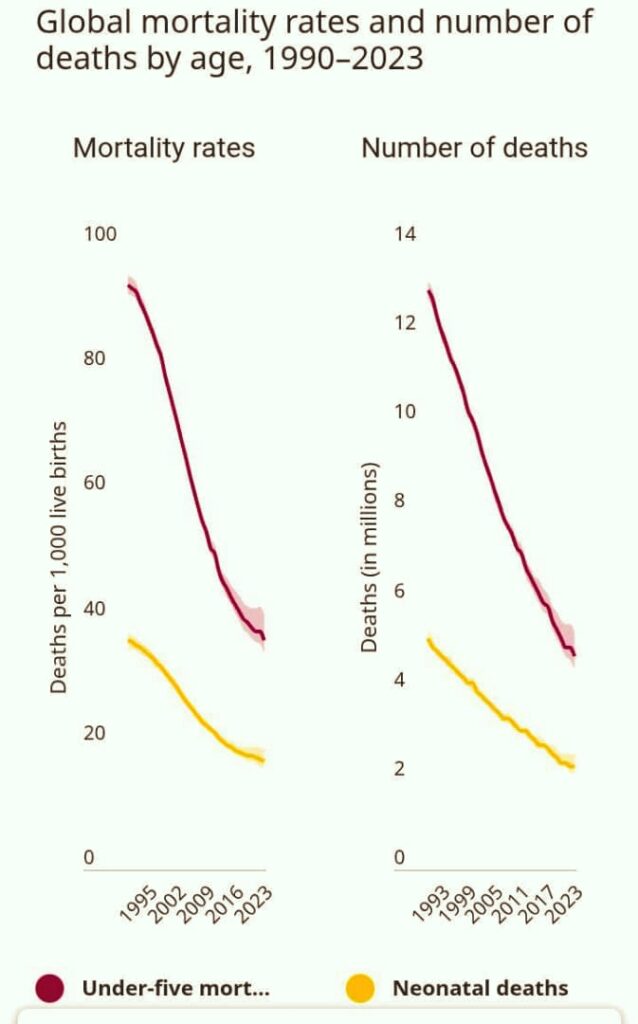The Unseen Struggles of Motherhood: A Story of Breastfeeding in Nigeria
Debunking myths and misconceptions, breastfeeding stories shed light on the realities of nursing, empowering young and old mothers with knowledge, reassurance and support for a positive and fulfilling experience.
By Oluwaseyi Elizabeth Jimoh
In the bustling streets of Nigeria, a mother’s decision to breastfeed her child is often met with a complex web of pressures, misconceptions, and lack of support.
Meet Caroline, a literate and urban mother of three, who made a decision that might seem unexpected. Unlike her first two children, who were exclusively breastfed for six months, her third child was introduced to pap as early as three months. Why, one may wonder.
Caroline believed her breast milk was no longer sufficient, a misconception shared by many working-class mothers.
Organizations like the WHO and UNICEF recommend exclusive breastfeeding for the first six months of life and continued breastfeeding alongside complementary foods for up to two years or beyond. Lack of breastfeeding or poor breastfeeding practices are major contributors to child mortality, particularly in the first year of life.

Source: United Nations Inter-agency Group for Child Mortality Estimation (UN IGME), 2025.
A Mother’s Dilemma
Caroline’s story is not unique. In fact, it’s a common narrative among many Nigerian mothers who struggle to balance work, family, and societal expectations. Despite the World Health Organization’s recommendation of exclusive breastfeeding for the first six months, many mothers are forced to make difficult choices.
Dr. Francis Akinkunmi, Head of Pediatrics at University of Medical Sciences Teaching Hospital (UNIMEDTH) explains that breast milk is sufficient, and babies aren’t satisfied due to improper latching. “Proper latching is the baby’s job — to suck and sleep. When they latch on well, more milk is produced and everyone is happy,” he says.

The Impact of Stress
But what happens when mothers are stressed, overwhelmed, and unsupported? Dr. Afe Duke, a pediatrician, highlights the role of stress in inhibiting milk production. “A stressed mother will struggle to lactate. Many working mothers juggle office demands, domestic chores, and societal expectations. We need supportive environments,” he emphasizes.
UNIMEDTH has taken a step in the right direction by establishing an on-site crèche and offering light duties for nursing mothers.
Optimal breastfeeding, especially exclusive breastfeeding for the first six months, significantly reduces the risk of death from infectious diseases like pneumonia and diarrhea for children under the age of 5, which are leading causes of death in young children.
A Beacon of Hope
Ondo State’s adoption of six months’ maternity leave and two weeks of paternity leave is a progressive move that empowers partners to play a more active role in childcare. “Breastfeeding is a shared responsibility,” Dr. Akinkunmi stresses. “From governments to employers, and even grandmothers, everyone has a role to play.” With the right support, mothers like Caroline can make informed decisions about breastfeeding, and babies can receive the nutrition they need to thrive.
The Benefits of Breastfeeding
The benefits of breastfeeding are numerous. Not only does it provide optimal nutrition for babies, but it also reduces the risk of breast and ovarian cancers, contracts the uterus post-delivery, and naturally spaces pregnancies. Dr. Akinkunmi breaks down the economic advantage, noting that formula can cost up to ₦60,000 weekly. “Breastfeeding is practically free and nutritionally superior,” he says.
Debunking Myths
Despite the benefits, breastfeeding is often shrouded in myths and misconceptions. Dr. Duke emphasizes that colostrum is nature’s first vaccine, rich in antibodies and essential for brain development. “We must educate grandmothers. Animals feed only breast milk. Humans, being higher animals, should know better,” Dr. Akinkunmi adds.

A Call to Action
As we navigate the complexities of motherhood, it’s essential to recognize the importance of supportive environments, education, and policy changes. By working together, we can create a society that empowers mothers to make informed decisions about breastfeeding. Let’s bridge the gap with policies, people, and persistent advocacy. Every child deserves a healthy start, and every mother deserves the means to give it.





Comments